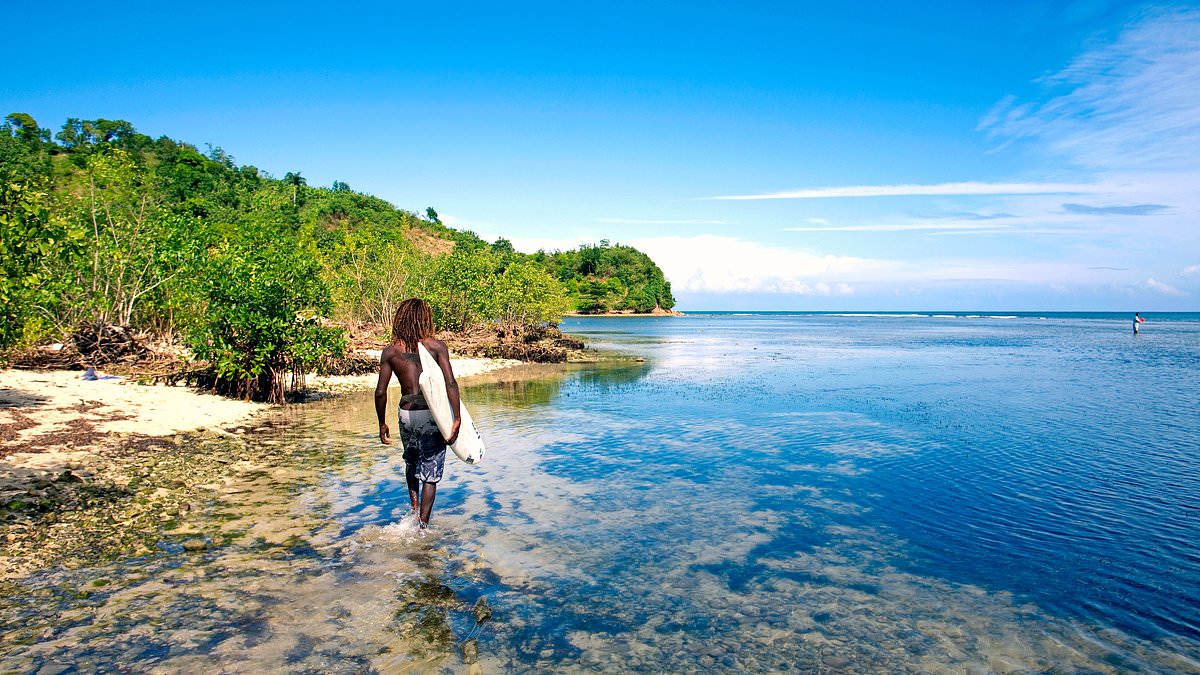The U.S. State Department is urging tourists to avoid visiting a Caribbean nation amid a state of emergency.
A ‘Level Four: Do Not Travel’ advisory for Haiti has been in place since March due to the country’s ongoing civil unrest, gang violence and riots.
But on September 18, the U.S. State Department updated the advisory with details about the risk of traveling – including kidnapping, mob violence and armed robberies.
They wrote: ‘Kidnapping is widespread, and U.S. citizens have been victims and have been hurt or killed. Kidnappers may plan carefully or target victims at random, unplanned times. Kidnappers will even target and attack convoys.
‘Kidnapping cases often involve ransom requests. Victims’ families have paid thousands of dollars to rescue their family members.’
They also state that mob violence has escalated leading to an increase in deaths and assaults.
A ‘focal point’ of these attacks are concentrated at the Aeroport International Toussaint Louverture in the commune of Port-Au-Prince.
At the international airport, the department said armed robberies and carjackers are probable – often targeting lone drivers and women.
Alarmingly, the warning said there’s little the U.S. government can do for their citizens in Haiti due to a general lack of resources.
Even the U.S. personnel are subjected to a ‘nightly curfew’ and are banned from using public transportation, visiting banks and ATMs, driving or traveling anywhere at night and venturing out without either prior approval and security measures in place.
Crossing the border by land between Haiti and the Dominican Republic is extremely risky as travelers can face expensive immigration fines and threats of kidnapping and violence since the roads are where these instances will likely occur.
The recent carnage came after Haiti’s prime minister, Ariel Henry, flew to Kenya to persuade the African country to speed up its UN-approved donation of 1,000 police officers to help bring order to Haiti and get rid of the gangs towards the end of February.
Powerful gang leader Jimmy ‘Barbeque’ Cherizier began his campaign of terror on February 29 after he claimed responsibility for gangs storming two of the country’s biggest prisons and freeing 4,000 prisoners before burning down government buildings and attacking a dozen police stations.
Cherizier said his aim was to block Henry’s return and capture police and government officials.
Even after securing the 1,000 police officers from Kenya, Henry was still unable to return to Kenya. Weeks later he would step down from the position.
Now the government has disintegrated.
This warning was issued six months after social media star YourFellowArab was taken hostage in Haiti by one of the gangs who have become de-facto leaders in the midst of the violence that has ravaged the Caribbean island.
YourFellowArab, whose real name is Addison Pierre Maalouf, was on the island to interview the man known popularly as Jimmy ‘Barbecue’ Cerisier, the most powerful gang leader in the country.
On March 14, Maalouf was taken by a gang known as the 400 Mawozo, led by kingpin Lanmo 100 jou, who is on the FBI most wanted list. Maalouf was being held for a ransom of $600,000.
Since the carnage began, 8,400 people have been killed, injured or kidnapped, the Global Centre for the Responsibility to Protect reported.
Five million Haitians are facing acute hunger, 1.6 million are at risk of starvation and more than 580,000 people are currently displaced.
